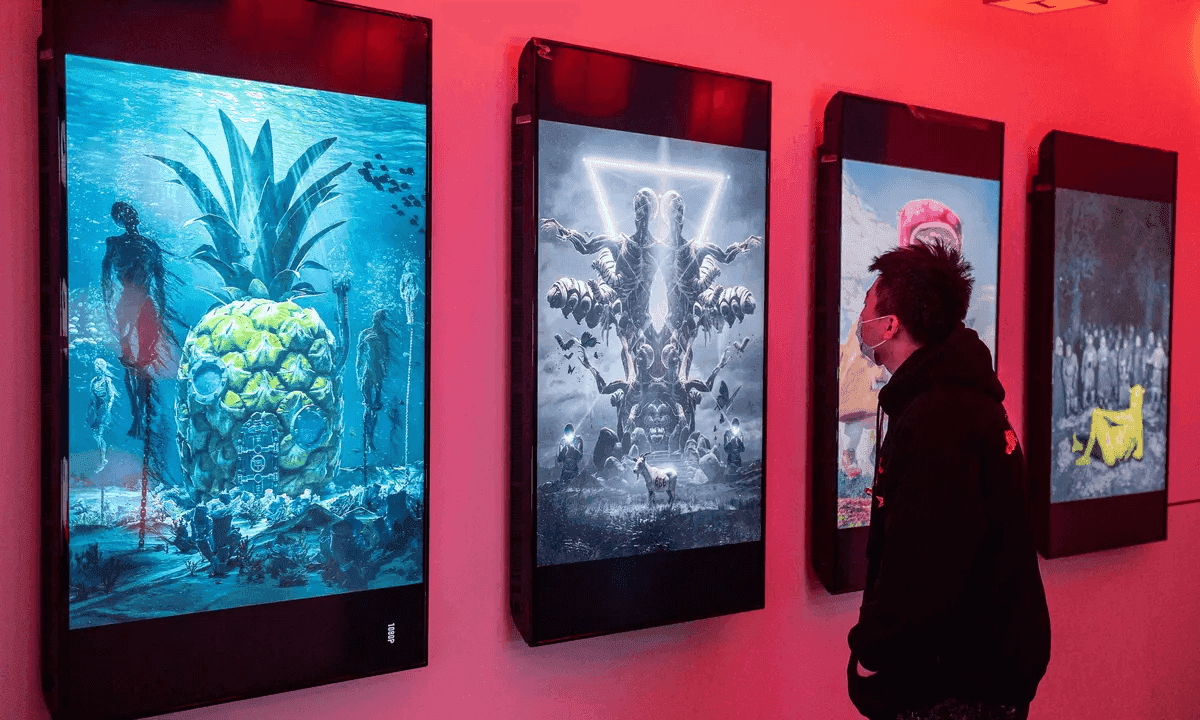
Will NFTs become as illegal as cryptocurrencies in China? A Chinese court issues a ruling and the debate opens up
A few days ago, the Hangzhou court in China ruled that NFTs must comply with laws established for e-commerce sales and those related to virtual property, due to their characteristics of ‘value, scarcity, traceability, and marketability’. The ruling was particularly lenient towards the sector after the 2021 ban on crypto. What might be the next developments following this news? Will NFTs become illegal in China?
Cryptocurrencies are banned in China
In 2021, the Chinese government officially banned crypto mining and trading. On the one hand mining was banned for environmental reasons (taking 50% of all global mining activity out of the country). On the other hand, crypto was banned for possible ‘speculation’ risks. All crypto-to-crypto and fiat-to-crypto transactions are therefore illegal in China. This is the case for both local and foreign platforms. The Chinese government had however not taken a decision at the same time to regulate NFTs.
Are NFTs legal in China?
From a legal point of view, NFTs are not banned in China. However, since their technology is linked to cryptocurrencies, the situation is complicated. A first aspect to consider is that, given the ban on crypto, non-fungible tokens cannot currently be purchased via cryptocurrencies. Generally speaking, although the Chinese government is not hostile to the concept of NFTs per se, it remains intolerant of possible financial applications and even simple buying and selling.
In this regard, on the 13th April 2022, the National Internet Finance Association of China, the China Banking Association and the Securities Association of China shared guidelines to ‘prevent financial risks related to NFTs’. These are not laws because these associations have no legislative powers, but rather steps to be taken to prevent users from associating tokens with the same concepts of ‘speculation’ that led crypto to be banned. These guidelines are like a test for those who want to create and sell NFTs in China and could guide future choices by the authorities by building standards.
Some of these measures are:
- Using only the state blockchain to create NFT (more on this blockchain later);
- Referring to NFTs as “virtual collector’s items” and not as “tokens”;
- Avoiding any association with crypto;
- Suspending NFT secondary markets;
- Using platforms that verify the identity of users.
A black market is born
The crypto ban has led many Chinese citizens to use virtual private networks (VPNs) that can circumvent the Chinese government’s localisation and censorship of international crypto services. In this manner, Chinese citizens can access marketplaces like OpenSea and Magic Eden, where they can buy crypto tokens and resell them according to their own strategy. It is estimated that 31% of Internet users in China use a VPN. Among them, buying and selling NFTs is very popular.
From the Hangzhou court: an NFT is like a pair of trainers
To complete the picture on the status of NFTs in China, a ruling came from the Hangzhou Court, which specialises in internet law. On the 29th of November, the court was called upon to rule on a conflict between a buyer and a marketplace that cancelled a sale of non-fungible tokens without the consent of the parties involved. On this occasion, the court ruled that NFTs belong “to the virtual property of the network” as a unique product protected by an intellectual asset. Non-fungible tokens should therefore, from a legal point of view, be considered as any product sold on an e-commerce website. The law that monitors this is the e-commerce Law, that has come into force since the 1st January 2019. It is a popular law drafted to respond to the rapid growth of online commerce.
Will NFTs become illegal? The latest news does not suggest any particular closures on the part of the Chinese authorities.
Can NFTs exist without cryptocurrencies?
The Chinese government has also proposed its own version of NFTs, i.e. created on the state blockchain. This network, called the Blockchain Services Network (BSN), is a centralised and ‘permissioned‘ blockchain. In contrast to all ‘permissionless’ public blockchains, the BSN is managed by selected employees and not by network validators. On this blockchain, all users are tracked in accordance with Chinese law. Also available on the BSN are tools for artists and brands that want to create their token collections, which can only be purchased in fiat currency. This Chinese version of NFTs is called BSN-DDC or distributed digital certificates.
In China, those who sell or create NFTs do so on the BSN or other similar compliant networks, such as Alibaba, Tencent and JD. Most of these services are offered by established Web2 companies, hardly any decentralised protocols can be found. So can there be NFTs without crypto? Can those proposed by the Chinese government not be considered real, non-fungible tokens? The debate is open, for the champions of decentralisation, ‘distributed digital certificates’ do not meet the needs of Web3.
An instrument of protest
Leaving aside the legislative aspects, NFTs have become popular enough in China to be used as a form of protest against the government.
The citizens of Shanghai last May chose non-fungible tokens as a means of communicating outside China about the oppressive lockdown policies imposed back in March. After the publication of a video against the harsh lockdown, the government had banned all references to the topic on social networks. NFTs then served as a way to bear witness to the difficult living conditions, in a way that was immutable and sharable worldwide.
Even if NFTs become illegal in China, examples like this make us believe that enthusiasts will not give up so easily on a technology with this potential.






